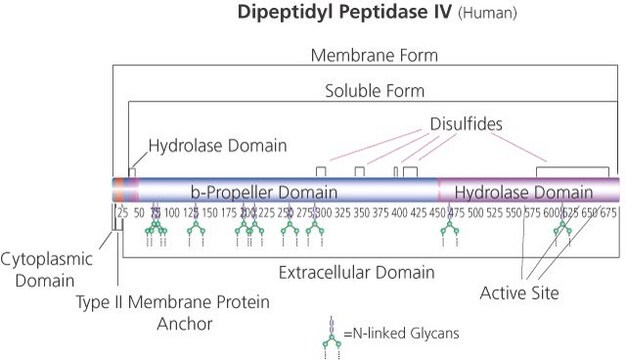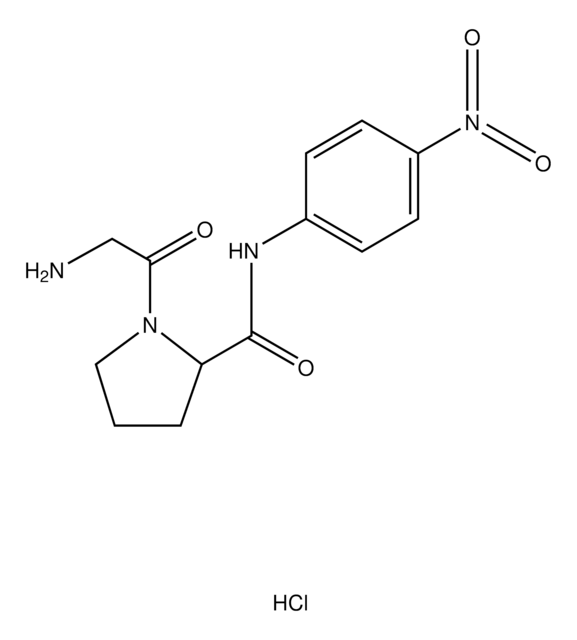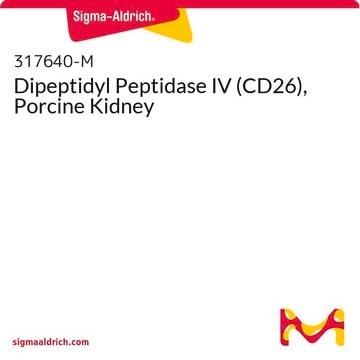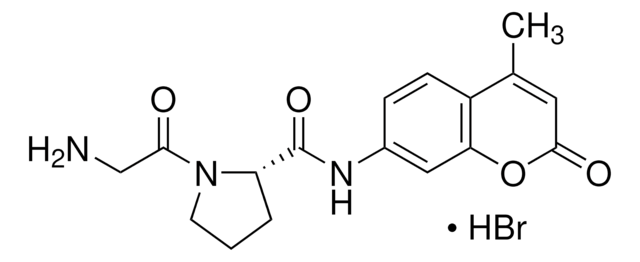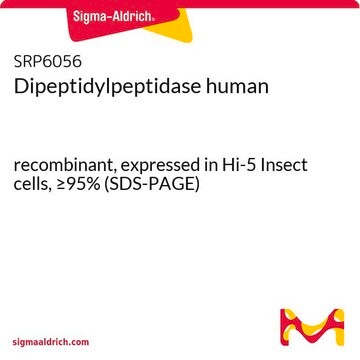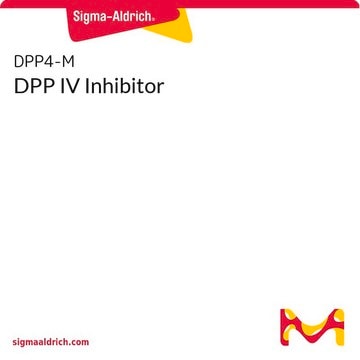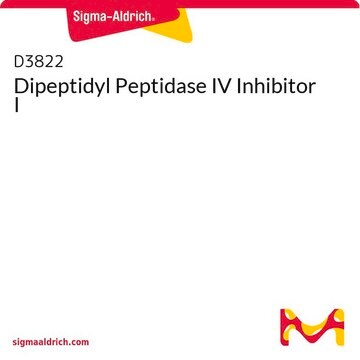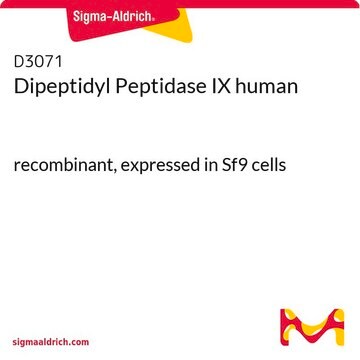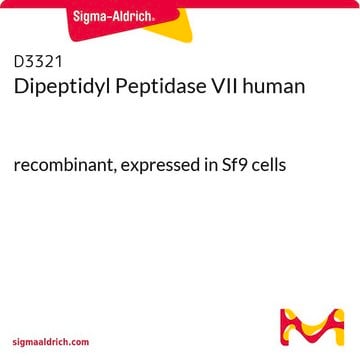D3446
Dipeptidyl Peptidase IV human
recombinant, expressed in Sf9 cells
Synonym(s):
CD26, DPPIV, Dipeptidyl aminopeptidase IV, Glycoprotein GP110
About This Item
Recommended Products
recombinant
expressed in Sf9 cells
Quality Level
form
solution
specific activity
≥4,000 units/μg protein
mol wt
124 kDa
concentration
≥0.01 mg/mL
UniProt accession no.
relevant disease(s)
cancer (lymphoma, prostate and colon cancer)
shipped in
dry ice
storage temp.
−70°C
Gene Information
human ... DPP4(1803)
Looking for similar products? Visit Product Comparison Guide
Related Categories
General description
Application
Biochem/physiol Actions
Unit Definition
Physical form
Other Notes
Signal Word
Danger
Hazard Statements
Precautionary Statements
Hazard Classifications
Eye Irrit. 2 - Repr. 1B - Skin Irrit. 2
Storage Class Code
6.1D - Non-combustible acute toxic Cat.3 / toxic hazardous materials or hazardous materials causing chronic effects
WGK
WGK 1
Flash Point(F)
Not applicable
Flash Point(C)
Not applicable
Choose from one of the most recent versions:
Certificates of Analysis (COA)
Don't see the Right Version?
If you require a particular version, you can look up a specific certificate by the Lot or Batch number.
Already Own This Product?
Find documentation for the products that you have recently purchased in the Document Library.
Customers Also Viewed
Our team of scientists has experience in all areas of research including Life Science, Material Science, Chemical Synthesis, Chromatography, Analytical and many others.
Contact Technical Service